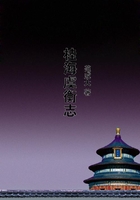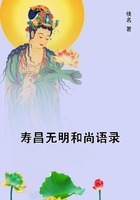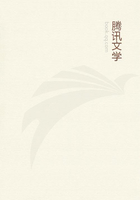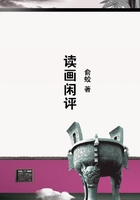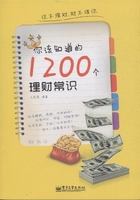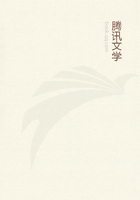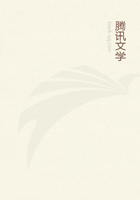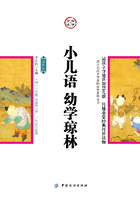In the preceding Essay I have endeavoured to establish the proposition, that every human creature, idiots and extraordinary cases excepted, is endowed with talents, which, if rightly directed, would shew him to be apt, adroit, intelligent and acute, in the walk for which his organisation especially fitted him.
There is however a sort of phenomenon, by no means of rare occurrence, which tends to place the human species under a less favourable point of view. Many men, as has already appeared, are forced into situations and pursuits ill assorted to their talents, and by that means are exhibited to their contemporaries in a light both despicable and ludicrous.
But this is not all. Men are not only placed, by the absurd choice of their parents, or an imperious concurrence of circumstances, in destinations and employments in which they can never appear to advantage: they frequently, without any external compulsion, select for themselves objects of their industry, glaringly unadapted to their powers, and in which all their efforts must necessarily terminate in miscarriage.
I remember a young man, who had been bred a hair-dresser, but who experienced, as he believed, the secret visitations of the Muse, and became inspired. "With sad civility, and aching head," I perused no fewer than six comedies from the pen of this aspiring genius, in no page of which I could discern any glimmering of poetry or wit, or in reality could form a guess what it was that the writer intended in his elaborate effusions. Such are the persons enumerated by Pope in the Prologue to his Satires, a parson, much bemused in beer, A maudlin poetess, a rhyming peer, A clerk, foredoomed his father's sou to cross, Who pens a stanza, when he should engross.
Every manager of a theatre, and every publishing bookseller of eminence, can produce you in each revolving season whole reams, almost cartloads, of blurred paper, testifying the frequent recurrence of this phenomenon.
The cause however of this painful mistake does not lie in the circumstance, that each man has not from the hand of nature an appropriate destination, a sphere assigned him, in which, if life should be prolonged to him, he might be secure of the respect of his neighbours, and might write upon his tomb, "I have filled an honourable career; I have finished my course."
One of the most glaring infirmities of our nature is discontent.
One of the most unquestionable characteristics of the human mind is the love of novelty. Omne ignotum pro magnifico est. We are satiated with those objects which make a part of our business in every day, and are desirous of trying something that is a stranger to us. Whatever we see through a mist, or in the twilight, is apt to be apprehended by us as something admirable, for the single reason that it is seen imperfectly. What we are sure that we can easily and adequately effect, we despise. He that goes into battle with an adversary of more powerful muscle or of greater practice than himself, feels a tingling sensation, not unallied to delight, very different from that which would occur to him, when his victory was easy and secure.
Each man is conscious what it is that he can certainly effect.
This does not therefore present itself to him as an object of ambition. We have many of us internally something of the spirit expressed by the apostle: "Forgetting the things that are behind, we press forward to those that remain." And, so long as this precept is soberly applied, no conduct can be more worthy of praise. Improvement is the appropriate race of man. We cannot stand still. If we do not go forward, we shall inevitably recede. Shakespear, when he wrote his Hamlet, did not know that he could produce Macbeth and Othello.
But the progress of a man of reflection will be, to a considerable degree, in the path he has already entered. If he strikes into a new career, it will not be without deep premeditation. He will attempt nothing wantonly. He will carefully examine his powers, and see for what they are adapted.
Sudet multum. He will be like the man, who first in a frail bark committed himself to the treachery of the waves. He will keep near to the shore; he will tremble for the audaciousness of his enterprise; he will feel that it calls for all his alertness and vigilance. The man of reflection will not begin, till he feels his mind swelling with his purposed theme, till his blood flows fitfully and with full pulses through his veins, till his eyes sparkle with the intenseness of his conceptions, and his "bosom labours with the God."
But the fool dashes in at once. He does not calculate the dangers of his enterprise. He does not study the map of the country he has to traverse. He does not measure the bias of the ground, the rising knolls and the descending slopes that are before him. He obeys a blind and unreflecting impulse.
His case bears a striking resemblance to what is related of Oliver Goldsmith. Goldsmith was a man of the most felicitous endowments. His prose flows with such ease, copiousness and grace, that it resembles the song of the sirens. His verses are among the most spirited, natural and unaffected in the English language. Yet he was not contented. If he saw a consummate dancer, he knew no reason why he should not do as well, and immediately felt disposed to essay his powers. If he heard an accomplished musician, he undertook to enter the lists with him.
His conduct was of a piece with that of the countryman, who, cheapening spectacles, and making experiment of them for ever in vain upon the book before him, was at length asked, "Could you ever read without spectacles?" to which he was obliged to answer, "I do not know; I never tried." The vanity of Goldsmith was infinite; and his failure in such attempts must necessarily have been ludicrous.
The splendour of the thing presented to our observation, awakens the spirit within us. The applause and admiration excited by certain achievements and accomplishments infects us with desire.

